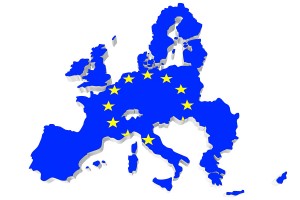Apple Inc. (NASDAQ:AAPL), Samsung, and 19 other technology companies petitioned the European Union today to limit injunctions against product imports while a patent case is still in the courts. This is a highly fluid moment in EU patent law as the league of European nations works to hammer out a Unified Patent Court which will treat the entire Union as a single jurisdiction for purposes of resolving intellectual property disputes. Apple and its fellow petitioners want a change from the current situation where imports are barred “even though the patent may ultimately be found invalid.”
The European Union’s plans to create a unitary patent system are intended to streamline the legal process and reduce patent registration costs. Rather than a “bundle” of patents which are theoretically part of an overall European patent system but actually use local laws from each of the 28 members of the EU to resolve disputes, the new patent and associated court would require only a single document. A central location would hear cases and issue judgments which would be simultaneously binding across every country of the economic alliance.
 Apple Inc.’s plea to limit injunctions while a patent case is underway highlights a very important repercussion of this new arrangement. Rather than a patent suit filing affecting sales in one country, the injunction against importation would probably extend across all of Europe. Thus, if the well known German “patent troll” IPCom filed a suit against Samsung, for example, rather than imports of Samsung products being confined to Germany, the ban would apply from the Atlantic to the borders of Russia and its client states.
Apple Inc.’s plea to limit injunctions while a patent case is underway highlights a very important repercussion of this new arrangement. Rather than a patent suit filing affecting sales in one country, the injunction against importation would probably extend across all of Europe. Thus, if the well known German “patent troll” IPCom filed a suit against Samsung, for example, rather than imports of Samsung products being confined to Germany, the ban would apply from the Atlantic to the borders of Russia and its client states.
This change would decisively shift European patent law in the direction of intellectual property laws in the United States of America. Currently, the European Union’s courts very frequently issue injunctions to prohibit sale of disputed devices even before the case has been decided, a legal echo of the ancient “presumption of guilt,” in which the accused needed to prove their innocence rather than the accuser needing to prove their accusations. The failure of Apple Inc. (AAPL) and other electronics manufacturers to obtain injunctions against the sale of the loser’s products even after winning patent suits in the U.S. underlines the difference between the systems, and the reason why these firms are seeking to alter the EU’s planned system.
For more Apple news follow PFhub on FaceBook, Twitter or bookmark this page.



